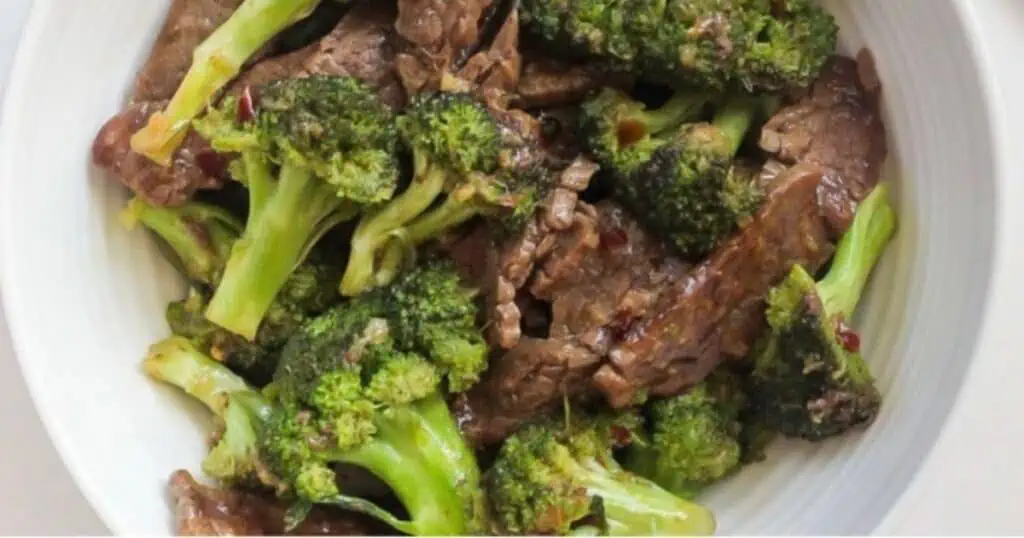How Much Protein is Enough?

Protein is not just for great skin, hair, and nails; it’s critical for health.
Without protein, your body wouldn’t be able to repair damage, digest food, fight infections, build muscle and bone, create hormones, or even think or have good moods.
Protein’s great benefits also include boosting metabolism, increasing satiety (feeling full after a meal), balancing blood sugar, and creating lean muscle.
So there’s no doubt protein is important. But how much is enough?
There are a few factors to consider when calculating how much protein we need. I will go through those calculations with you. Then below I’ll list the amount of protein in some common foods.
How much protein is enough?
There isn’t a real rule that applies equally to everyone. There are a few factors to consider when figuring out how much protein you need.
Start with the minimum recommendation of 0.8 grams of protein per kilogram of body weight per day (or 0.36 grams per pound of body weight).
So, for a 68 kg (150 lb) healthy non-athlete adult, this is about 55 grams of protein a day.
Mind you, this is a minimum. Like, to prevent protein deficiency. It’s not an optimal amount for repair, digestion, immune function, tissue building, hormones, brain function, and mood. And it’s definitely not enough for athletes, women in any phase of menopause, or those recovering from an injury, either. If you fall into one of these categories, you may need to increase your minimum protein intake. Aim closer to 1.3 g/kg (0.6 g/lb) per day.
Why do some people need more protein?
Athletes need more protein for their energy and muscle mass.
Women before, during, and after menopause need more protein to help ward off muscle and bone loss that happens as we age.
And injured people need extra protein for recovery and healing damaged tissue.
How much protein is too much?
Extra protein gets converted into sugar or fat in the body. But extra protein isn’t converted as easily or quickly as carbohydrates or fat; this is because of protein’s “thermic effect.”
The thermic effect is the amount of energy required to digest, absorb, transport, and store a nutrient. Digesting protein requires more energy (i.e., burns more calories) than digesting fats or carbohydrates.
As with fat and carbohydrates, eating too much protein can cause weight gain. Maintaining the correct ratio of protein, fat, and carbohydrates is key to weight loss.
And if you’ve heard that high protein intake may harm your kidneys, consider this: If your kidneys are healthy, they are more than capable of filtering out excess amino acids (the byproducts of digesting protein) from your blood. Kidney problems only occur in people who already have kidney issues.
How much protein is in the food you eat?
Protein can be found in meat, dairy, and vegetables. Here are some examples:
● A 3.5 oz chicken breast has 31 g of protein
● A 3.5 oz can of salmon has 20 g of protein
● ½ cup cooked beans contain 6-9 g of protein
● A large egg contains 6 g of protein
● ¼ cup nuts contains 4-7 g of protein
● 1 medium baked potato contains 3 g of protein
So for a 68 kg (150 lb) person, you’d need to include two eggs for breakfast, a tuna or salmon salad for lunch, 1/4 cup nuts for a snack, and a 4.0 oz chicken breast for dinner to meet your protein needs.
For those on a vegetarian or vegan diet, lots of high-protein vegetables like beans, peas, legumes, potatoes, artichokes, brussels sprouts, mushrooms, and kale will be necessary. You may need to eat more than 10 cups of vegetables daily, so consider a marine collagen or pea protein powder to supplement your whole foods.
What are my key takeaways?
Protein is an essential nutrient you need to get enough of. “Enough” is about 0.8 – 1.3 g/kg (0.36 – 0.6 g/lb) per day.
If you’re a healthy non-athlete adult, you can aim for the lower level. If you’re an athlete or recovering from an injury, aim for the higher level. If you’re entering menopause, aim for a moderately high level.
Too much protein can cause weight gain, so it’s best to have just enough.
I’d love to know: Are you one of those people who needs more protein? Let me know in the comments.
What is on for tonight’s dinner?
Here’s a delicious high-protein recipe for tonight’s dinner:
Curious about what else you should be eating for optimal health? Book a free discovery call with me today.

